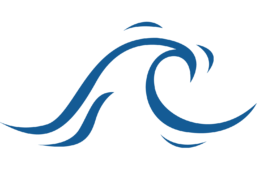Should I have Both a 401K AND IRA?
Retirement planning can be a daunting task. There are so many different investment options available, it can be hard to know where to start. One of the most common questions people ask is whether they should have both a 401k and IRA.
The answer to this question depends on a variety of factors, including your income, your age, and how much you want to save for retirement. In this blog post, we will discuss the pros and cons of having both a 401k and IRA, so that you can make an informed decision about which option is best for you!
What is a 401k?
The 401k is a retirement savings plan that is sponsored by an employer. Employees who participate in a 401k plan can choose to have a portion of their paycheck deducted and deposited into their 401k account. The money in a 401k account grows tax-deferred, which means that you will not pay taxes on the money until you withdraw it in retirement. 401k plans also offer a variety of investment options, which can make them a good choice for people who want to have more control over their retirement savings.
What is an IRA?
The IRA is an individual retirement account that is not sponsored by an employer. Anyone can open an IRA, regardless of whether they are employed. Like a 401k, the money in an IRA grows tax-deferred, and you will not pay taxes on the money until you withdraw it in retirement. IRAs also offer a variety of investment options as well.
What’s the Difference Between a 401k and IRA?
There are a few key differences between 401k plans and IRAs such as:
Contribution Limits
One of the biggest differences is that 401k plans have higher contribution limits than IRAs. For example, in 2019, the contribution limit for 401k plans is $19,000, while the contribution limit for IRAs is $6,000. This means that you can potentially save more money for retirement by contributing to a 401k plan.
Fees
Another difference between 401k plans and IRAs is that 401k plans are typically offered by employers, while IRAs are not. This means that you may have to pay fees to participate in an IRA, but you will not have to pay any fees to participate in a 401k plan.
Loans and Withdrawals
The final difference between 401k plans and IRAs is that 401k plans offer loans and hardship withdrawals, while IRAs do not. This means that you can borrow money from your 401k plan if you need to, but you cannot borrow money from your IRA.
So, Should You Have Both a 401k and IRA?
The answer to this question depends on your individual circumstances. If you have a 401k plan at work, you may want to contribute to it up to the contribution limit. If you do not have a 401k plan at work, or if you max out your 401k contribution, you may want to consider opening an IRA. Ultimately, the best retirement savings plan for you is the one that you can contribute the most money to.
Is it Good to Have Both?
There are a few advantages to having both a 401k and IRA. For one, it can help you save more money for retirement. Having two accounts also gives you more flexibility in how you Invest your money. You can choose to invest more aggressively in one account and more conservatively in the other, depending on your risk tolerance.
There are a few disadvantages to having both a 401k and IRA as well. For one, it can be difficult to keep track of two accounts. You will also have to pay taxes on the money you withdraw from both accounts in retirement.
Is it Better to Have a 401k or IRA or Both?
There is no easy answer when it comes to deciding whether a 401k or IRA is better for you. It ultimately depends on your individual circumstances. For example, if you are young and have a low income, you may be better off contributing to an IRA because you can get a tax deduction for doing so. On the other hand, if you are older and have a higher income, you may be better off contributing to a 401k because you will not have to pay taxes on your withdrawals in retirement.
There are pros and cons to both types of accounts, so it’s important to weigh all of your options before making a decision. Below, we will take a closer look at the pros and cons of each account:
401k Pros:
- Employer matching contributions: Many employers will match a percentage of your contributions, which can be a great way to boost your savings.
- Tax breaks: Contributions to a 401k are made with pre-tax dollars, which means you get a tax break when you contribute.
- Retirement income: With a 401k, you can choose to receive your retirement income in the form of an annuity, which can provide a steady stream of income in retirement.
401k Cons:
- Limited investment options: With a 401k, you are limited to investing in the options offered by your employer.
- Early withdrawal penalties: If you withdraw money from your 401k before you reach retirement age, you will be subject to a 10% penalty.
- Required minimum distributions: Once you reach age 70 ½, you are required to take minimum distributions from your 401k, which means you will have to pay taxes on the money you withdraw.
IRA Pros:
- Tax breaks: Contributions to an IRA are also made with pre-tax dollars, which means you get a tax break when you contribute.
- Flexible investment options: With an IRA, you have a lot of flexibility when it comes to investing your money. You can choose from a wide variety of investment options, including stocks, bonds, and mutual funds.
- No required minimum distributions: With an IRA, you are not required to take minimum distributions, which means you can leave your money invested for as long as you want.
IRA Cons:
- Early withdrawal penalties: If you withdraw money from your IRA before you reach retirement age, you will be subject to a 10% penalty.
- Contribution limits: There are limits on how much you can contribute to an IRA each year. For 2019, the limit is $6,000 ($7,000 if you are age 50 or older).
So, should you have both a 401k and IRA? As you can see, there are pros and cons to both types of accounts. The best way to decide which option is right for you is to speak with a financial advisor who can help you understand your unique circumstances and make the best decision for your future.
Can you have both an IRA and a 401k?
The answer is, yes! In fact, many people find that having both an IRA and a 401k is the best way to save for retirement. Here are some of the benefits of having both types of accounts:
- You can save more money. If you have both a 401k and IRA, you can contribute a total of $19,500 to your retirement accounts each year (or $26,000 if you’re 50 or older). This is much more than you could save with just one account.
- You can diversify your investments. When you have both a 401k and IRA, you can spread your money out across different types of investments, which can help you minimize risk and maximize returns.
- You can take advantage of different tax benefits. 401k contributions are made with pre-tax dollars, which means you get a tax break now. IRA contributions are made with after-tax dollars, but they grow tax-deferred. This means you won’t have to pay taxes on your investment earnings until you withdraw the money in retirement.
There are some drawbacks to having both a 401k and IRA, however. For one thing, it can be confusing to keep track of two different accounts. Additionally, you may have to pay fees to maintain both accounts. But if you’re serious about saving for retirement, having both a 401k and IRA can be a great way to reach your financial goals.
How Much Can I Put in an IRA if I Have a 401k?
The first thing you need to know is that there are limits on how much you can contribute to each type of account. For example, in 2018, the 401k contribution limit is $18,500 for people under the age of 50. This means that if you are over the age of 50, you can contribute up to $24,500 to your 401k. On the other hand, the IRA contribution limit is $5,500 for people under the age of 50, and $6,500 for those over the age of 50.
How Much Will my IRA be Worth in 20 years?
Assuming you start with nothing in your IRA and contribute the maximum each year, you would have $1,048,000 in 20 years.
401K contribution limits for 2019:
The elective deferral (contribution) limit for employees who participate in 401(k), 403(b), most 457 plans, and the federal government Thrift Savings Plan is increased from $18,500 to $19,000.
The catch-up contribution limit for employees aged 50 and over who participate in 401(k), 403(b), most 457 plans, and the federal government Thrift Savings Plan is increased from $6,000 to $6,000.
IRA contribution limits for 2019:
The IRA contribution limit for 2019 is $6,000. The catch-up contribution limit for those aged 50 and over is $1,000.
Final Thoughts
Retirement planning can be confusing, but if you want to make sure you’re doing everything right, consider opening both a 401k and an IRA. With these two accounts, you can take advantage of different tax benefits, save more money overall, and diversify your investments. Just keep in mind that you may have to pay fees to maintain both accounts, and it can be confusing to keep track of two different sets of investments. But if you’re serious about saving for retirement, having both a 401k and IRA is a great way to reach your financial goals.
For a better understanding of retirement savings plans read our article here.










